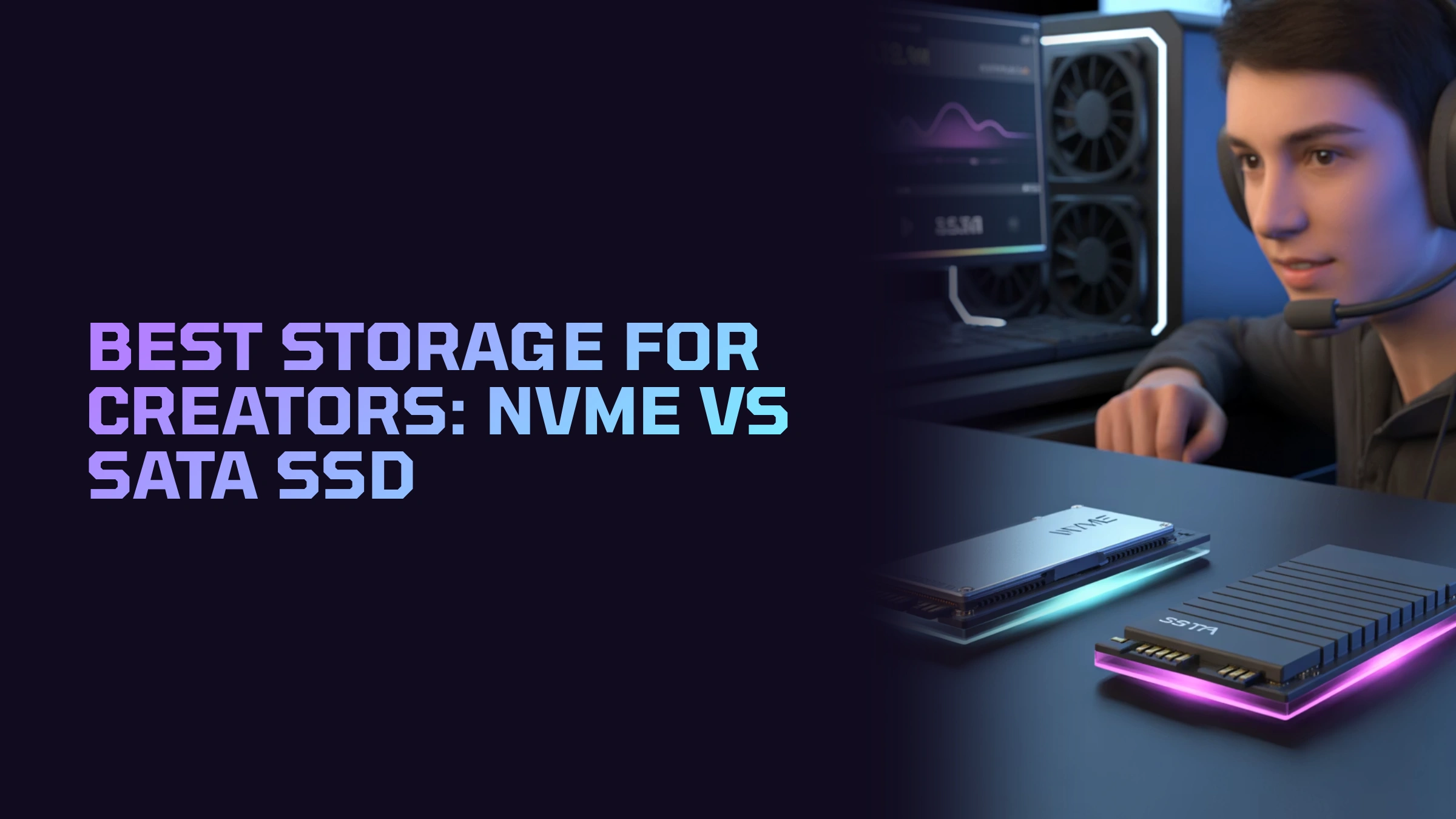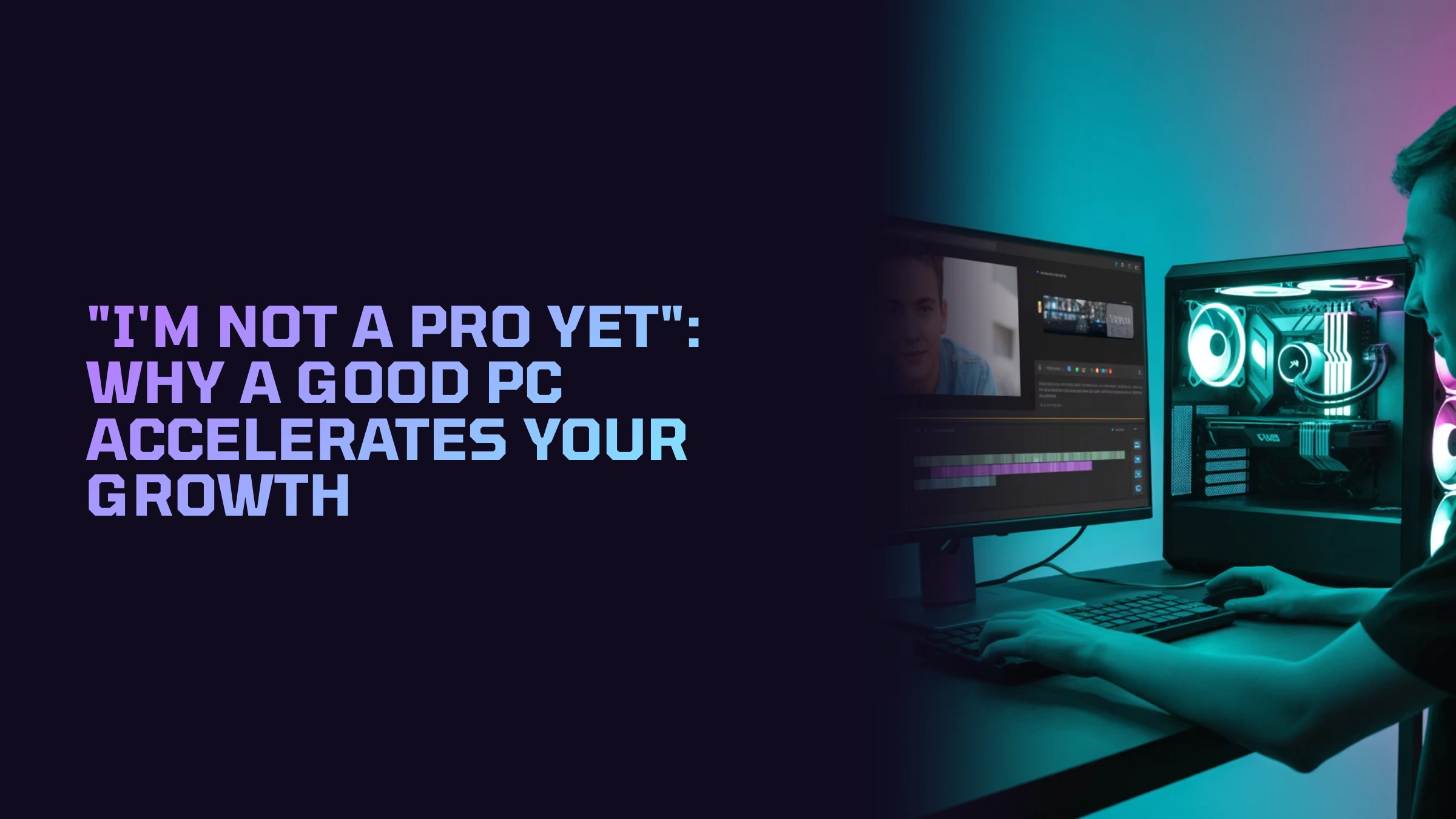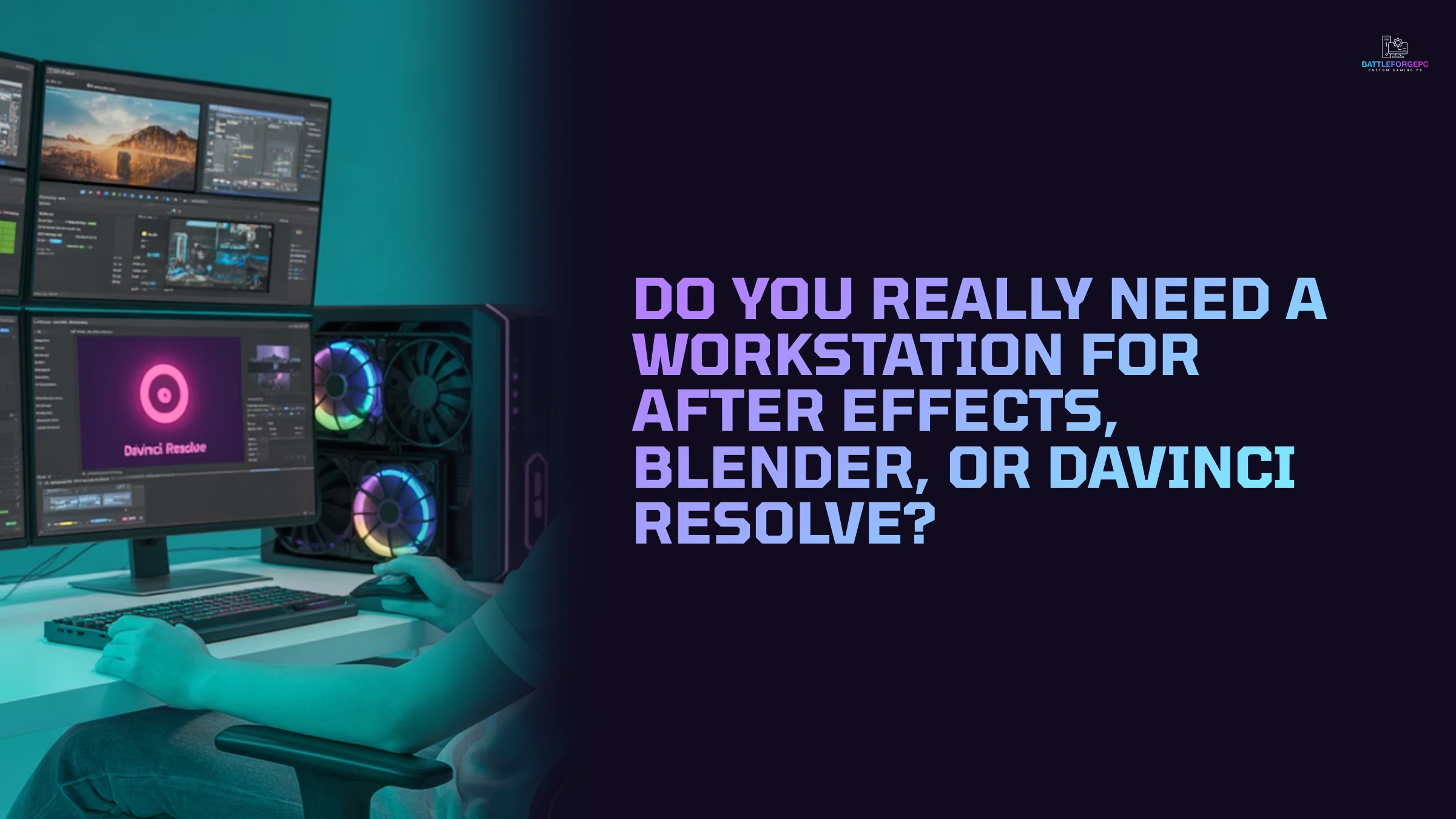Best Storage for Creators: NVMe vs SATA SSD

Best Storage for Creators: NVMe vs SATA SSD
Your storage choice can make the difference between smooth 4K timeline scrubbing and constant stuttering.
But do you really need expensive NVMe drives, or will SATA SSDs handle your creative workflow just fine?
⚡ Speed Differences Explained
Real-World Performance
SATA SSD: ~550 MB/s read/write
NVMe PCIe 3.0: ~3,500 MB/s read/write
NVMe PCIe 4.0: ~7,000 MB/s read/write
NVMe PCIe 5.0: ~12,000+ MB/s read/write
But raw numbers don't tell the whole story for creative work. Sequential vs random performance matters more for different tasks.
🎬 Video Editing Performance
1080p Projects
SATA SSD handles 1080p perfectly:
• Smooth timeline scrubbing
• Multiple video tracks without issues
• Fast enough for most effects
• Save money for other components
4K and Above
NVMe shows clear advantages:
• Smoother 4K timeline performance
• Better multi-cam editing
• Faster proxy generation
• Reduced dropped frames during playback
RAW and ProRes Workflows
High bitrate codecs demand maximum speed:
• RED RAW: NVMe essential for smooth playback
• ProRes 422 HQ: SATA struggles with multiple streams
• BRAW: NVMe recommended for real-time grading
📸 Photo Editing Considerations
Lightroom and Photoshop performance:
• RAW preview generation: NVMe 30-50% faster
• Large file opening: Noticeable improvement with NVMe
• Batch processing: SATA usually sufficient
• Smart preview builds: NVMe cuts time significantly
🎨 3D and Motion Graphics
Blender, Cinema 4D, After Effects:
• Scene file loading: NVMe advantage grows with complexity
• Texture streaming: High-res textures benefit from speed
• Cache files: NVMe improves preview performance
• Rendering output: Faster file writes during export
💰 Price vs Performance
Current Pricing (1TB drives)
SATA SSD: $60-80
NVMe PCIe 3.0: $80-100
NVMe PCIe 4.0: $100-130
High-end NVMe: $150-200+
The price gap has narrowed significantly in 2025, making NVMe the smarter choice for most new builds.
🔧 Smart Storage Setup Strategy
Tiered Storage Approach
Optimal configuration:
• 500GB-1TB NVMe: OS, software, active projects
• 2TB SATA SSD: Recent projects, cache files
• 4TB+ HDD: Archive storage, backups
• External drives: Client delivery and collaboration
Budget-Conscious Setup
If budget is tight:
• Start with 1TB NVMe for everything
• Add SATA SSD later as projects grow
• Use external storage for completed work
• Cloud backup for critical files
⚠️ Common Storage Mistakes
Avoid these errors:
• Putting project files on slow HDD
• Mixing different speed drives in RAID
• Ignoring endurance ratings for heavy workloads
• Forgetting about backup strategy
• Choosing capacity over speed for active work
🎯 Recommendations by Use Case
Hobbyist/Part-time Creator
1TB NVMe + 2TB HDD
• Covers most needs affordably
• Room to grow
• Good performance for 1080p-4K
Professional Creator
1TB NVMe + 2TB SATA SSD + 4TB HDD
• Fast active workspace
• Ample project storage
• Archive capacity
High-End Studio
2TB+ NVMe + Multiple SATA SSDs + NAS
• Maximum performance
• Redundancy and backup
• Team collaboration support
✨ Bottom Line
For 2025, NVMe is the smart choice for primary storage due to narrowing price gaps and clear performance benefits.
SATA SSDs still make sense for secondary storage and budget builds.
Your storage strategy should match your workflow - speed where you need it, capacity where you don't.
🚀 Ready to Upgrade?
👉 Need help planning your storage setup?
Get customized recommendations based on your projects and budget. 💾⚡
Comments
Please log in to comment


![Cover image for Lunar Lake vs Arrow Lake: Shocking Differences Revealed in Intel's Next-Gen CPUs [2025 Guide]](https://xyhebqsgccwvmigqkwam.supabase.co/storage/v1/object/public/article_images/covers/c2b550d8-3c68-444a-b9c7-82d05fb89846.jpg)